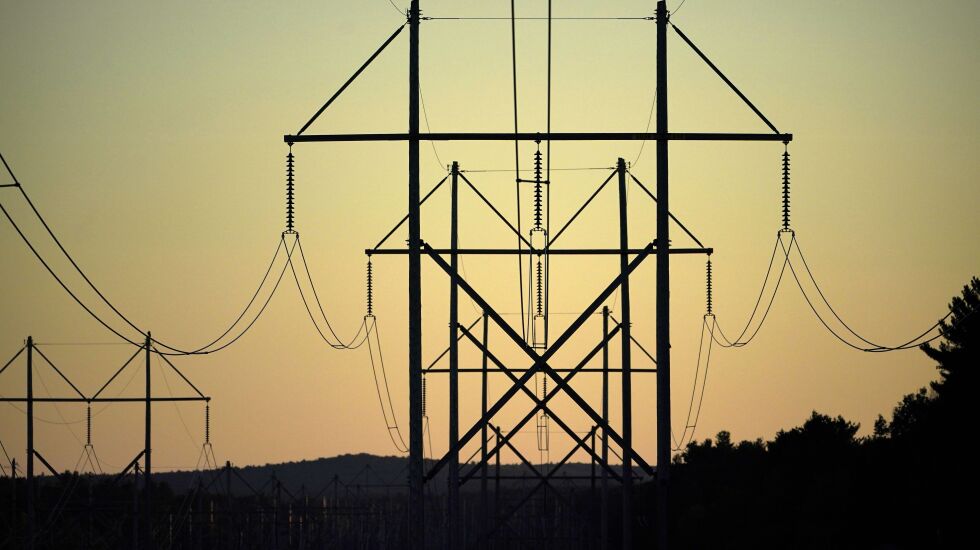
In a behind-scenes, last-minute maneuver on May 26, the Legislature found a way to hobble Illinois’ important conversion to renewable energy. Gov. J.B. Pritzker should veto the idea, as has said he will, and find a way to ensure benighted lawmakers don’t override his veto.
In a sneaky maneuver, the Legislature slipped through a Senate amendment that would give the downstate energy utility Ameren monopolistic control over anyone building regional power lines across its territory. Such an enormous corporate giveaway could make it harder and more expensive to decarbonize the state’s and nation’s power grid just when it is crucial to connect new renewable energy sources, such as wind and solar power installations, to customers in population centers.
The regional power lines Ameren could control possibly would include those that would connect the Chicago area to new solar and wind energy. But Ameren has an apparent conflict of interest: its parent company owns fossil fuel plants that generate electricity.
We’re not saying we know what Ameren would do, but slow-walking any new regional power lines appears as though it could be in its financial interest. And, as in all situations in which a company gains monopoly power, there is a risk of customers paying unnecessarily high prices for less service.
Setting the stage for utility monopoly rights
The bill is a good deal for Ameren, whose shareholders could benefit at a time when the Illinois Commerce Commission might not grant the utility’s full rate increase request. The International Brotherhood of Electrical Workers also supported the bill. But, as Pritzker said, according to a spokesperson, the measure “puts corporate profits over consumers.”
The Ameren bill is similar to other efforts nationwide to grant monopoly rights to utilities to build power lines over their areas. ComEd has not yet asked for such a right, but if this bill goes through, there is nothing stopping ComEd from doing so. Nationally, there is a concern that whoever controls the power lines can give preferential treatment to certain power generators.
Renewable energy projects around the country already are backed up because the power grid doesn’t have the capacity to transport the power they would generate. To distribute enough new renewable energy to meet climate goals, the United States needs 47,300 gigawatt-miles of new power lines by 2035, the New Times has reported. The grid will need 57% more capacity, and it took more than a century to build what we have now.
Moreover, the nation’s power grid will need to evolve from one that generally connects large power plants to customers, to one that connects to many more smaller renewable power generators built where wind and solar power is abundant.
As it is, getting all the approvals necessary for new regional power lines can take years, even decades, before a proposed renewable energy facility is finally linked to customers. President Joe Biden has publicly supported speeding up that permitting process.
Something that has this much impact on Illinois’ plans to move to a future based on renewable energy should have been carefully debated with all stakeholders, not slipped through at the last minute when some lawmakers no doubt weren’t fully aware of what they were voting on. The bill — which Rich Miller of Capitol Fax called a “last-minute sweetheart deal” that was “muscled through” — passed with a veto-proof majority in the state Senate, but not in the House.
Local hurdles of all kinds are a threat to reaching climate goals. For example, two town board members were recalled in the Oconto County, Wisconsin, town of Morgan last year just for agreeing to put solar power farms on their own farmland.
At a time when reducing the amount of greenhouse gases released into the environment is so important, and when nations around the world are acting too slowly to reduce those emissions, throwing up any unnecessary roadblocks to a greener future is simply bad for the planet.
The Sun-Times welcomes letters to the editor and op-eds. Here are our guidelines.







